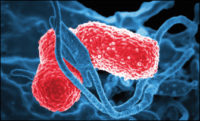Humanity owes rats an apology. Historians have long argued that fleas carried by rats were responsible for the Black Death, the devastating plague that killed a third of Europe’s population – some 25 million people – between 1347 and 1351. But a new study suggests that the disease was in fact spread by human-borne parasites, said NationalGeographic.com. Plague is caused by the bacterium Yersinia pestis, and when an infected flea bites a human, the bacteria can congregate in lymph nodes and cause them to swell into the gruesome blackened “buboes” that give the bubonic plague its name. In every outbreak since the late 19th century, rats and other rodents have helped spread the disease. But scientists at University of Oslo suspected that the 14th-century Black Death killed too many people too fast for rats to have been its main transmitters. Researchers used computers to model three different transmission methods: by fleas on rats, by fleas and lice on humans, and airborne bacteria. The human-parasite model, they found, matched mortality records from the Black Death most closely. “The plague really transformed human history,” says study lead author Katharine Dean, “so it’s really important to understand how it was spreading and why it was spreading so fast.”
Related Posts
December 5, 2023
Vitamin C is Cancer’s Worst Adversary
Most people take Vitamin C to fend off a cold, but new research suggests it could also be a possible weapon in the fight against cancer. A team of researchers... continue reading
March 2, 2023
Why Bacteria Are Becoming Drug-Resistant
People suffering from bronchitis, flu, and other ailments often leave their doctor’s office with a prescription for antibiotics— even though in many cases... continue reading
January 17, 2023
The Chelation Miracle – EDTA & Cardio Advantage Plus
According to the Center for Disease Control and Prevention, cardiovascular disease, particularly heart attacks and strokes, are the number one disease killer... continue reading


